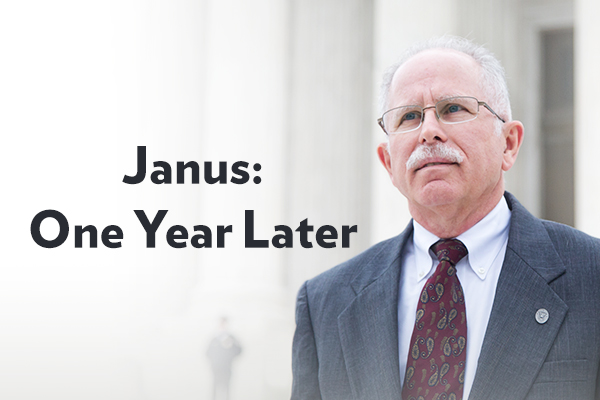Media

One Year After Janus
One year ago, Pennsylvania government workers like William, Megan, Shalea, Curtis, and Francisco weren’t planning to taking their union to court. Yet, they are among dozens of employees suing to leave their unions following a U.S. Supreme Court decision that fundamentally changed the public sector labor landscape.
Videos: Pennsylvania Plaintiffs Suing their Unions
In June 2018, the court restored First Amendment rights to public sector workplaces across the nation—ruling in Janus v. AFSCME that public employees no longer had to pay union “fair share” fees if they didn’t join the union.
Immediately, the decision impacted about 330,000 public sector Pennsylvania workers and freed approximately 30,000 existing fee-payers from subsidizing an organization (and its politics) they didn’t support. The change cost unions around $10 million immediately in lost fees annually.
While fee-payers regaining control of their own paychecks is a victory itself, the decision had additional ramifications in the courts, at the bargaining table, and in the state capitol.
The infographic below offers a timeline of key events, they include:
- Unions leaders trapping workers that want to leave their union by enforcing “maintenance of membership” contract provisions. These provisions restrict members from resigning until a 15-day window every few years.
- A growing number of Pennsylvania public employees resorting to lawsuits when union leaders wouldn’t let them leave.
- Select legislators attacking workers’ right to privacy by authoring legislation to allow secret ballot union elections.
- A mix of state and local membership gains and losses, with an overall decline in union membership nationally and in Pennsylvania.
- Elected officials championing worker freedoms, including loosening maintenance of membership restrictions, and alerting workers to their rights and removing fair share fee provisions from state law through the Employee Rights Notification Act (House Bill 785).
Too many Pennsylvania workers don’t know the rights Janus restored to them last year or can’t exercise their basic freedom to join or leave an organization.
Teachers, social works, prison guards and other public servants shouldn’t have to wait years to exercise the rights Janus reclaimed. Visit American’s for Fair Treatment for more information on how public workers can resign.
Meanwhile, it’s imperative for government employers to proactively tell workers about their rights. Luckily, as workers stand up and speak out, they are beginning to gain the workplace freedom they deserve.
Infographic: Post-Janus Labor Landscape